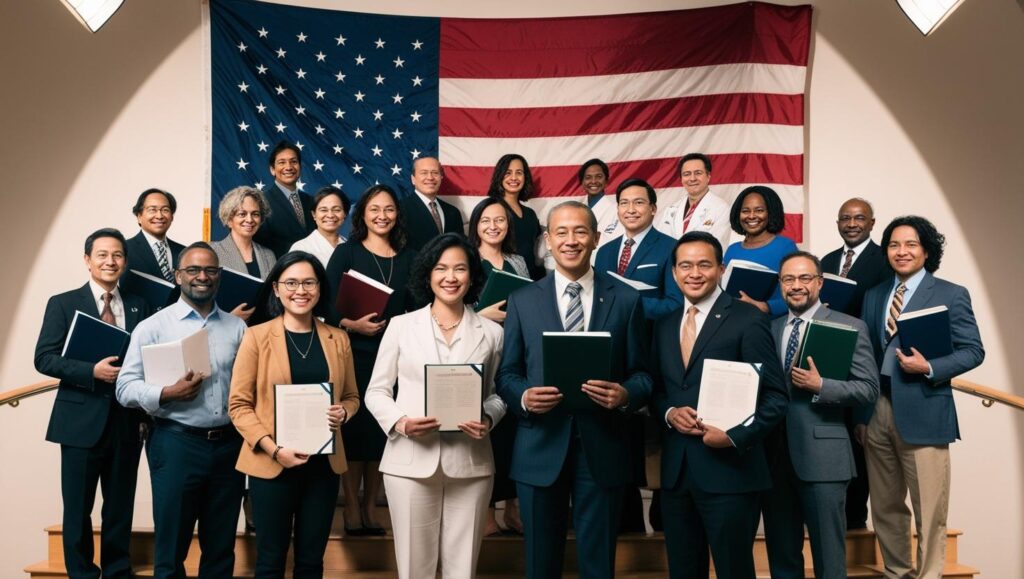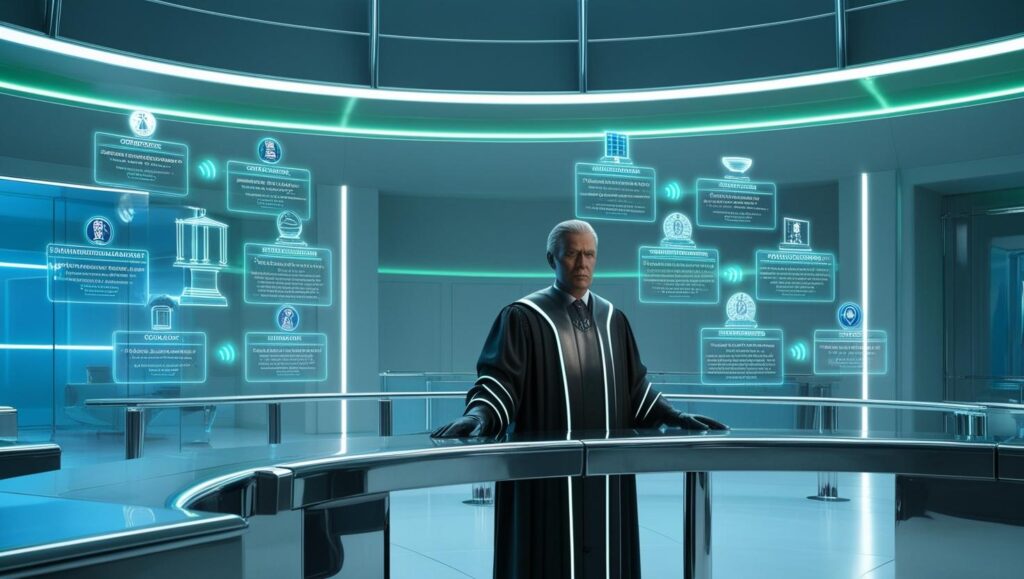Here’s what nobody tells you about EB-1 visa green cards – everyone wants to know the magic number of citations that guarantees approval. You know what? There isn’t one. The United States Citizenship and Immigration Services (USCIS) doesn’t work that way, and frankly, that’s both good and bad news depending on where you stand.
Look, citations matter – they really do. But they’re not the whole story when it comes to getting your green card approved. Let’s dig into what actually happens with citations in the EB-1 process and why the citation requirement isn’t as black and white as you’d hope.
What Makes the EB-1 Visa So Special?
The EB-1 sits at the top of the employment-based immigrant visa food chain. It’s built for people who’ve made it big in science, arts, education, business, or athletics. You’ve also got outstanding researchers and professors in this category, plus some high-level executives from multinational companies.
Why do people call it the “gold standard”? Simple – you get to skip the labor certification mess that trips up other employment-based categories. No need to prove that American workers can’t do your job. You just need to show you meet the EB-1 requirements, and you’re good to go.
Citations – What Are They and Why Should You Care?
Think of citations like votes of confidence from your peers. When other researchers reference your work in their scholarly publications, books, or journals, that’s a citation. It shows your research actually matters and influences other people’s work.
For EB-1 green card applications, especially if you’re going for alien of extraordinary ability or outstanding researcher status, citations prove you’ve got sustained national or international acclaim. They’re concrete proof that your original contributions and outstanding achievements actually move the needle in your field.
But here’s where it gets tricky – USCIS doesn’t give you a magic number. No “you need exactly 847 citations to get approved.” They look at your citation count alongside everything else in your application.

So How Many Citations Are Actually Needed for a Green Card?
This is where things get real. The answer depends on your field, your other accomplishments, and honestly, which USCIS officer reviews your case. But based on what immigration attorneys see in practice, here’s the breakdown:
Under 50 Citations – You’ve Got Work to Do
If you’re sitting under 50 citations, your case needs serious help from other areas. You’ll need rock-solid evidence of extraordinary ability or international recognition to make up for it. Think major awards, groundbreaking patents, or leadership roles that changed your industry.
50-100 Citations – Getting Somewhere
This range puts you in decent territory, especially in academic fields. But the USCIS officer will still scrutinize where those citations come from. Are they in prestigious national or international journals? Do they show real impact? Quality still beats quantity here.
100+ Citations – Now You’re Talking
Once you hit triple digits, especially if your work appears in scholarly journals with international circulation or gets mentioned in major media, you’re building a strong case. This level typically demonstrates the sustained national or international acclaim USCIS wants to see.
Quality Trumps Numbers Every Time
Don’t just count citations – look at where they’re coming from:
- Are internationally recognized experts citing your work?
- Do the citations appear in top-tier journals with high impact factors?
- Has your work influenced major advancements in your field?
USCIS officers dig into these details when they evaluate whether your work has major significance.

The Other Pieces of Your EB-1 Puzzle
Citations alone won’t get you there. You need to hit at least three out of ten criteria that USCIS outlined. Here’s what else they’re looking for:
- Published material about you in major media or professional journals
- Evidence you’ve judged other people’s work in your field
- Proof your original contributions made a major impact
- Your work published in scholarly journals or books
- Documentation of international recognition or prestigious awards
You’ll also need letters of recommendation from field experts, a solid petition for alien worker, and other supporting documents that tell your story.
What If Your Citation Count Is Low?
Don’t panic if your numbers aren’t impressive. You can still build a winning case:
Show off other wins: Focus on awards, patents, leadership roles, or innovations that prove your extraordinary ability.
Find comparable evidence: Some fields just don’t generate tons of citations. Show your impact through other measurable ways.
Get killer recommendation letters: Have recognized experts explain why your work matters, even if it hasn’t been cited much yet.
Why You Might Want Legal Help
The EB-1 green card application process gets complicated fast. An experienced immigration attorney knows how to present your case in the best light, gather the right evidence, and handle any request for evidence that pops up.
They’ve seen what works and what doesn’t, which can save you months of delays and potential rejections.
The Bottom Line on Citations and Your Green Card
Citations matter, but they’re not everything. USCIS takes a big-picture view of your application, weighing your citation count against the quality of those citations and all your other extraordinary achievements.
If you’re thinking about an EB-1 visa, remember that citations are just one tool in your toolkit. Build a strong overall case, consider getting professional help, and focus on telling the complete story of why you deserve permanent residency in the U.S.
Understanding how citations fit into the bigger picture helps you prepare better and increases your chances of success in the green card application process.

Frequently Asked Questions
How many citations typically strengthen an EB-1 visa green card application?
There’s no set number, but having 200+ citations often strengthens your case significantly, especially for EB1A applications. However, the quality and impact matter more than raw numbers. Some applicants succeed with fewer citations if they have strong evidence in other areas.
Do EB-1 and EB2 NIW have different citation expectations?
Yes, they do. The EB-1 visa, particularly EB1A, typically requires more extensive proof of extraordinary ability, which often means higher citation counts. An EB2 NIW petition may accept somewhat lower numbers, but both evaluate citations as part of the overall evidence package.
How does USCIS actually evaluate citation in regards to EB-1 applications?
USCIS officers look beyond just numbers. They examine which journals cite your work, whether the citations show sustained recognition, and if your research has influenced field advancements. They want to see that your work creates ripple effects in your industry.
Are citations the main criteria used to determine whether an applicant qualifies?
Not at all. Citations are just one factor among many. USCIS also considers many publications, awards, professional memberships, salary levels, commercial success, and letters of recommendation. They evaluate the complete picture of your achievements.
Can you get an EB-1 green card without many publications or citations?
It’s possible but tougher. You’ll need exceptional strength in other areas – patents, industry leadership, innovative contributions, or significant recognition. An immigration attorney can help assess your unique situation and identify the strongest arguments for your case.
What role do citations play in your Form I-140 petition?
Citations serve as objective proof of your work’s impact and recognition. In your I-140, detail your citation record and explain how key citations demonstrate your influence. Include citation analysis when possible – it helps USCIS understand the context and importance.
What types of citations work best for EB-1 applications?
The most valuable citations come from internationally recognized experts, appear in top-tier journals, get included in textbooks or reference works, or lead to practical applications. Citations showing your work’s impact across multiple subfields or disciplines provide especially compelling evidence.
Key Takeaways
Professional legal guidance helps present your strongest possible case beyond citation counts
No magic number exists – USCIS evaluates each case individually based on field and overall evidence
Citation quality from prestigious sources often matters more than total quantity
Citations represent just one of multiple criteria needed to prove extraordinary ability
Under 50 citations requires exceptional strength in other achievement areas
100+ quality citations typically provide solid evidence of sustained acclaim

